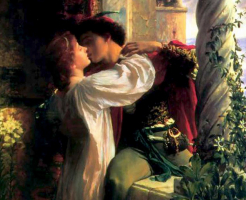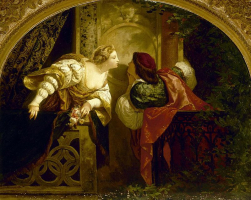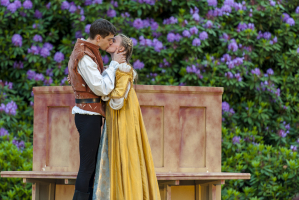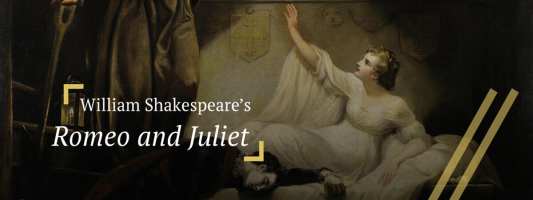Top 6 Main Themes in Romeo and Juliet with Analysis
Love is the most prominent theme in Romeo and Juliet, but the play also addresses many other important ideas. Shakespeare challenges us to consider the ... read more...significance of dualism, friendship, honor, fate, and death. After all these years, the play is still well-liked because all these issues are still important today. Explore the main themes in Romeo and Juliet with Toplist through the following article.
-
The Dominance of Love in Romeo and Juliet
Romeo and Juliet, the renowned love story in English literature, places love as its central and crucial theme. The play explores romantic love, highlighting the intense passion that ignites between Romeo and Juliet at first sight. Love, in this context, emerges as a force that surpasses societal norms, family loyalties, and even personal emotions. The play showcases the lovers defying their social world, challenging their families, friends, and even the ruling authority for the sake of their love.
However, Shakespeare presents love in a raw and powerful form, far from the idealized version found in conventional poetry. In Romeo and Juliet, love is depicted as a potent and overwhelming emotion that transcends easy definitions. It is described in religious terms and at times, as a mystical force, resisting any singular metaphor due to its incomprehensible power. The play does not offer a specific moral stance on the relationship between love and society, religion, or family. Instead, it portrays the chaotic and passionate nature of being in love, incorporating images of love, violence, death, religion, and family in an impressionistic manner, leading to the tragic conclusion.
Love as a Catalyst for Violence
Death and violence are pervasive themes in Romeo and Juliet, intricately tied to passion, whether it be love or hatred. While the link between hate, violence, and death is evident, the connection between love and violence is explored more deeply. The passionate love between Romeo and Juliet is entwined with thoughts of suicide, symbolizing the extreme nature of their emotions. Love becomes an amoral force in the play, leading not only to happiness but also to destruction. The culmination of their love story is a double suicide, the ultimate expression of their profound love.
Barriers to Love
Despite being one of the most celebrated love stories globally, Romeo and Juliet emphasizes the obstacles that hinder love rather than focusing solely on the emotion itself. The feuding Capulet and Montague families represent a significant barrier. Additionally, the lovers themselves pose challenges with their differing understandings of love. Romeo begins with clichéd expressions of love, while Juliet remains grounded in practical considerations such as marriage and societal constraints. Timing is another obstacle, as everything related to love in the play unfolds hastily, raising questions about the authenticity of the lovers' feelings.
Love and Suffering
Contrary to the idealized view of love, Romeo and Juliet depict love as chaotic, dangerous, and linked to violence. Shakespeare intertwines love with pain and death, portraying an inherent chaos in both the physical and emotional aspects of expressing love. The play is replete with examples illustrating the interplay of love and violence, showcasing how love's intensity can lead to danger and death. From Juliet's metaphorical depiction of love as a "petite mort" to the lovers' use of violent language in expressing their passion, Shakespeare suggests that love is tumultuous, destabilizing, and inherently linked to violence.
In conclusion, Romeo and Juliet presents an intense love story where love dominates, often leading to violence and tragedy. Shakespeare challenges conventional notions of love, portraying it as a complex and powerful emotion that defies easy categorization. The play's exploration of love's connection to violence and the obstacles lovers face adds depth and complexity to this timeless tale.
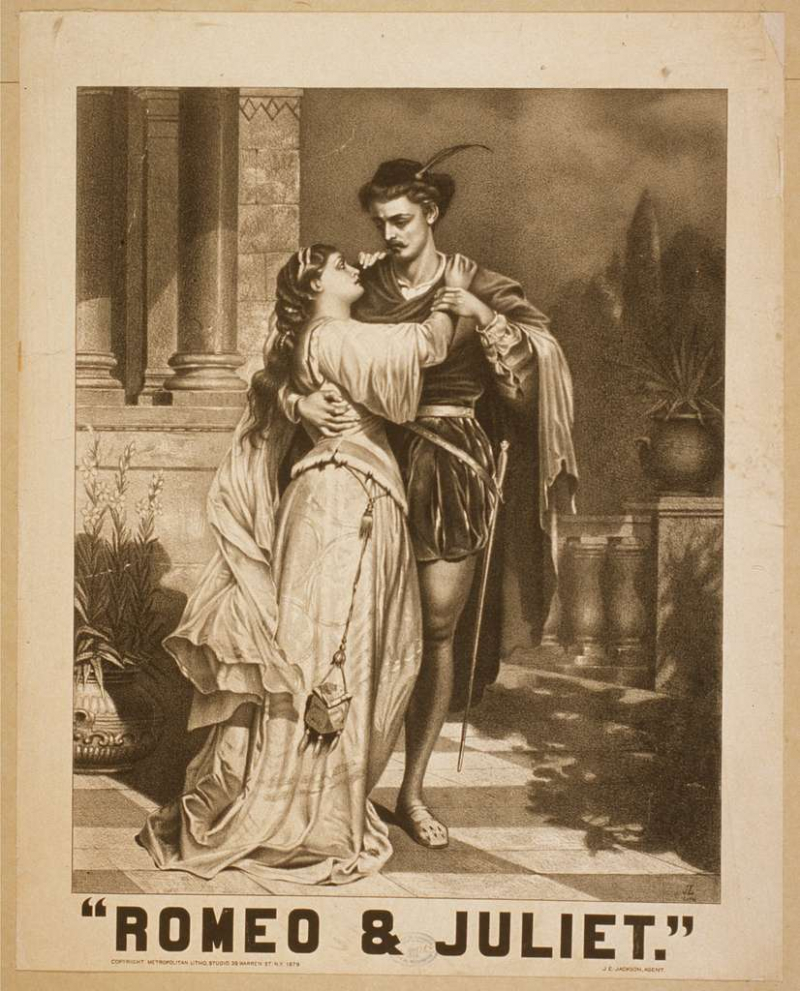
Photo on PICRYL 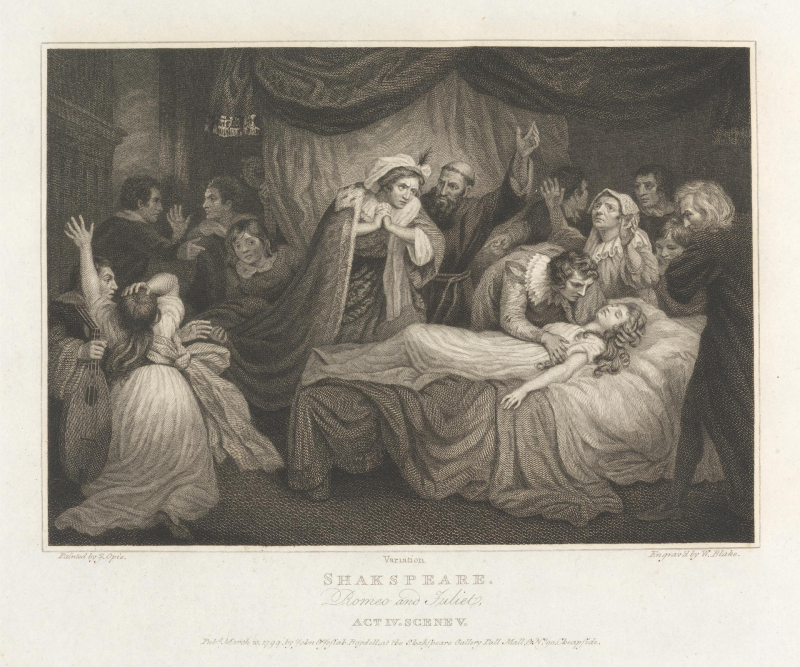
Photo on Wikimedia Commons -
In the timeless tale of Romeo and Juliet, much of the narrative revolves around the lovers' relentless battles against societal structures that either overtly or implicitly oppose the existence of their love. These institutions encompass a spectrum from tangible entities like families, where paternal authority holds sway, to more abstract concepts such as law, religious norms, and the societal importance attributed to masculine honor. Often, these institutions clash with one another, presenting formidable obstacles for the ill-fated lovers.
The perpetual conflict between the Montague and Capulet families, coupled with the emphasis on loyalty and honor to kin, creates a profound dilemma for Romeo and Juliet. Their love demands rebellion against deeply ingrained familial enmity, placing them at odds with the expectations set by their heritage.
Furthermore, the Renaissance-era patriarchal power structure, where the father dictates the actions of family members, particularly women, leaves Juliet in a vulnerable position. Her heart is perceived as belonging to her family, not to herself. The law and societal norms insist on decorum that love's passionate impulsivity cannot adhere to. Even religious priorities, though typically respected by the lovers, begin to crumble under the intensity of their forbidden love. Juliet, in an act of passionate devotion, elevates Romeo to the status of a god, a blasphemous sentiment in the context of their Christian surroundings.
The ultimate act of suicide, a departure from Christian ideals, underscores the profound clash between private desires and the responsibilities dictated by social institutions. Masculine honor, a societal emphasis that forces Romeo into undesirable actions, becomes a crucial factor in the tragic unfolding of events.
Romeo and Juliet can be viewed as a battleground where individual desires clash with the obligations imposed by social structures. The lovers' yearning for the privacy of night and their renunciation of names to escape societal expectations reflect their desire to break free from the public world. However, the harsh reality persists: the night inevitably turns into day, and Romeo cannot shed his Montague identity at will.
In their suicides, the lovers seek the ultimate escape into the realm of darkness and privacy, defying the constraints imposed by the external world. The tragedy unfolds as a poignant struggle between the individual's private desires and the unyielding demands of social institutions, leaving a lasting imprint on the timeless narrative of Romeo and Juliet.
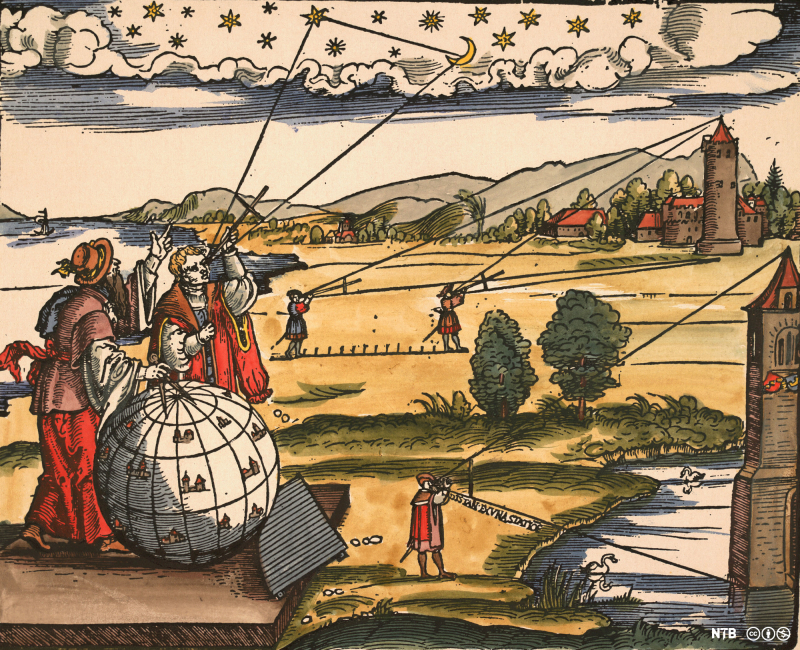
Photo on NDLA 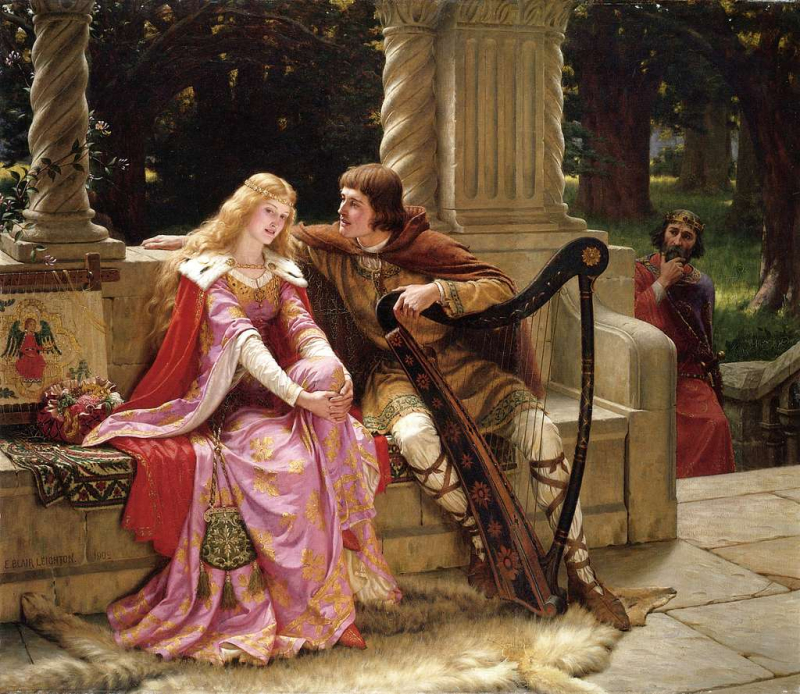
Photo on PICRYL -
From the opening address by the Chorus, it is established that Romeo and Juliet are "star-crossed," signifying that fate, often tied to celestial movements, governs their lives. This theme of fate is pervasive throughout the play, not only for the audience but also within the awareness of the characters. Romeo and Juliet frequently encounter omens, and even in the face of tragedy, Romeo defies the stars, challenging the predetermined course set by destiny.
Paradoxically, Romeo's defiance itself becomes a manifestation of fate, ultimately leading to their tragic demise.
Fate operates as the driving force behind various events in the lovers' lives: the unexplained feud between their families, the unintended consequences of Friar Lawrence's well-intentioned plans, and the tragic timing of Romeo's suicide and Juliet's awakening. These occurrences are not mere coincidences but rather manifestations of fate, steering the narrative towards the inevitable conclusion of the young lovers' deaths.
While the commonly accepted interpretation portrays fate as an external cosmic force, there are alternative readings. Fate can be seen as a product of powerful social institutions shaping Romeo and Juliet's choices, as well as an emergence from the very personalities of the protagonists.
Shakespeare weaves the concept of fate and fortune throughout the play, suggesting that humans are subject to a cosmic plan beyond their control. The characters acknowledge unseen forces that influence their lives, attempting to outsmart them with disastrous results. Juliet's poignant lamentation reveals her belief in being a pawn of fate, yet she strives to defy the heavens. Similarly, Romeo expresses frustration with being "fortune's fool" after Tybalt's death and vows to "deny" the stars in the face of Juliet's apparent demise. These expressions highlight the characters' understanding of their lack of autonomy against the force of fate.
Shakespeare's portrayal of fate is dark, emphasizing that attempts to defy destiny can lead to disastrous consequences. Whether or not Shakespeare viewed fate as all-powerful, his plays, including Romeo and Juliet, suggest that resisting one's fate can be a perilous endeavor.
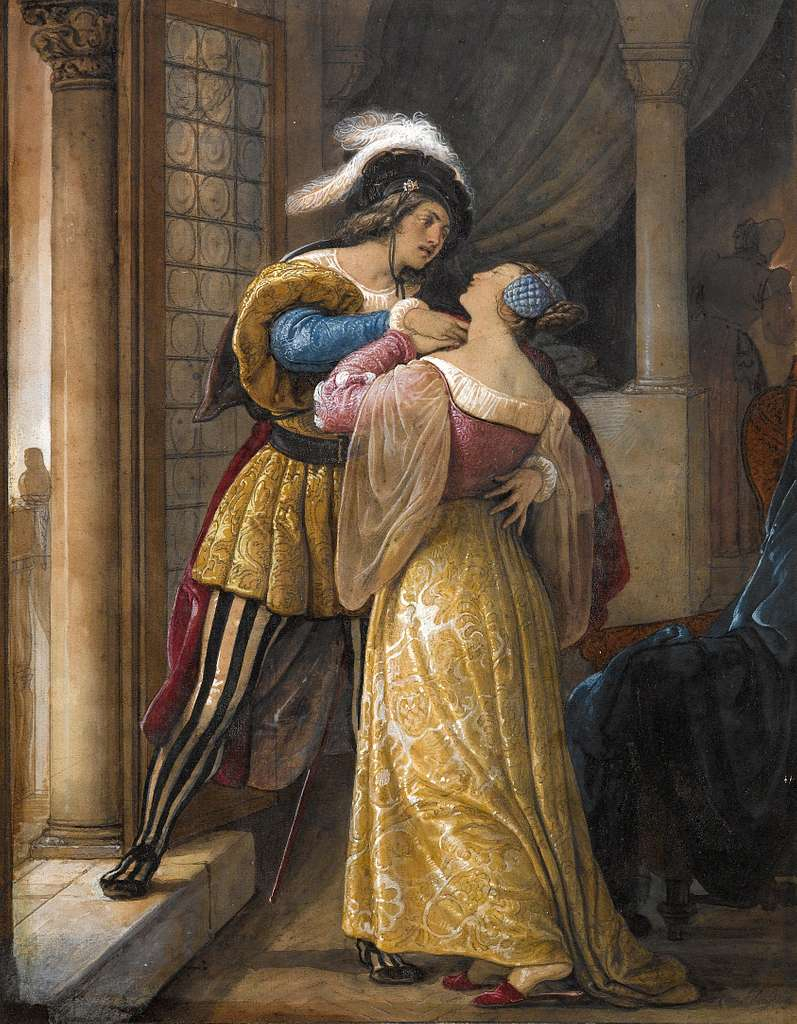
Photo on PICRYL 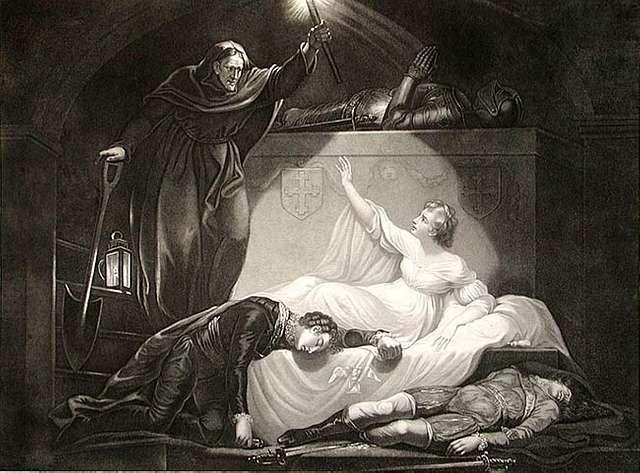
Photo on PICRYL -
In the world of Romeo and Juliet, violence is not merely an occasional occurrence but an inherent aspect, fueled by the enduring feud between the Capulets and the Montagues. Shakespeare sets the tone in the play's opening scene, where Sampson and Gregory exchange violent banter about the Montague family. As tensions rise, Lord Montague's servant, Abram, is drawn into the conflict, and the immediate response is a call to arms. The pervasive atmosphere of aggression is established early on, illustrating how deeply rooted violence is in the play's environment.
The short tempers of Verona's young men further accentuate the prevalence of violence, exemplified by Tybalt's readiness for a fight upon spotting Romeo at the Capulet ball. Despite Lord Capulet's efforts to quell Tybalt's anger temporarily, it eventually erupts in Act III, leading to a fatal duel with Mercutio and Tybalt's demise at the hands of Romeo. Tragic as it may be, these violent outbursts seem almost inevitable, fueled by the continuous feud that keeps the embers of hatred smoldering and ready to ignite.
The connection between violence and sex is a noteworthy theme in the play. This association is not only a general shadow cast by the feud on Romeo and Juliet's romance but is also evident in specific instances. Sampson, in the opening scene, expresses his desire for both physical violence against Montague men and sexual assault on Montague women, intertwining the themes of sex and violence.
The events following Romeo and Juliet's wedding further highlight this connection, framing Act III with Romeo's slaying of Tybalt and the aftermath of his night with Juliet, potentially consummating their marriage. Even the language of sex in the play carries violent undertones, as seen when Romeo makes a sexual pun, using "death" as slang for orgasm.
In summary, violence in Romeo and Juliet is deeply intertwined with the ongoing feud, fueled by short tempers and erupting in tragic confrontations. The connection between violence and sex adds complexity to the narrative, showcasing how these themes are not isolated but intricately woven into the fabric of the play.
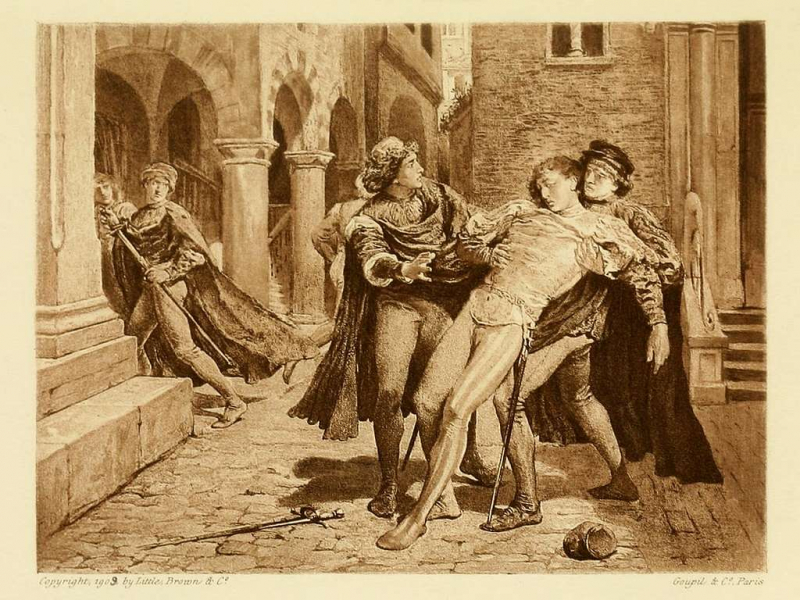
Photo on PICRYL 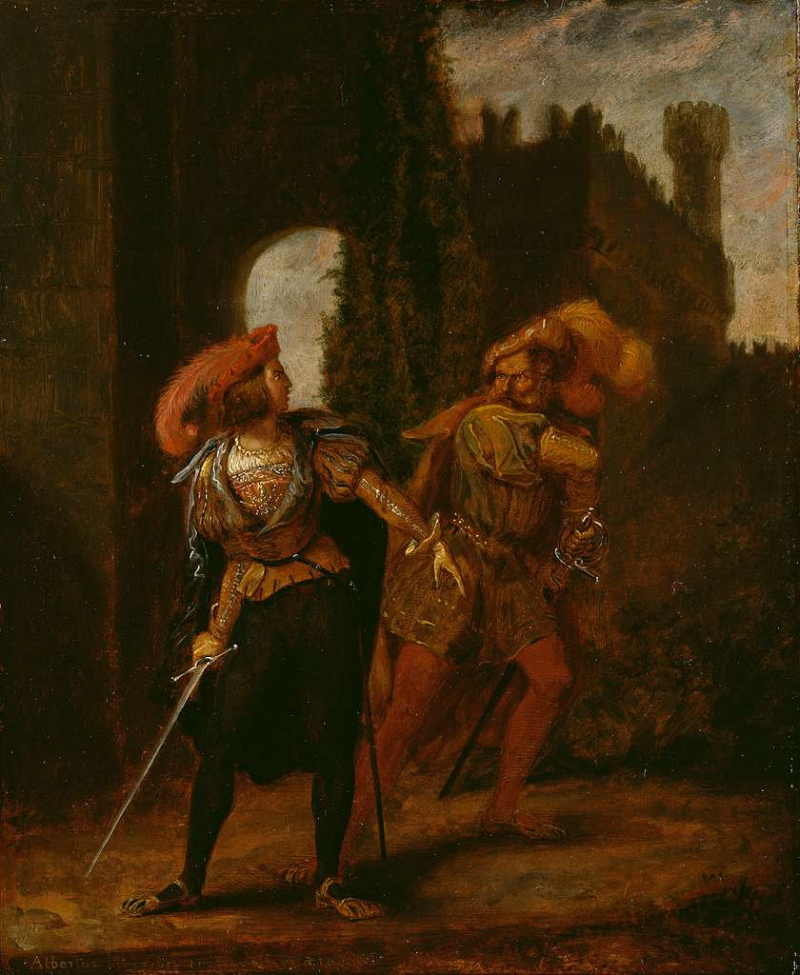
Photo on PICRYL -
Shakespeare skillfully uses the characters of Romeo and Juliet to illuminate the theme of youth in various dimensions. Romeo is intimately connected with the spirited young men he associates with in the streets of Verona, showcasing a group prone to impulsive actions and quick to resort to violence. Their rivalries mirror aspects of modern gang culture, although it's essential to note that Romeo and his friends are part of the privileged elite of the city.
Beyond the association with groups of young men, Shakespeare portrays Romeo as somewhat immature. In the play's initial scene, Romeo's expressions about Rosaline are laden with clichés from conventional love poetry. Both Benvolio and Mercutio take turns teasing him for his romantic fervor, emphasizing his seeming fixation on one woman. Benvolio suggests that Romeo's seriousness hinders him from embracing his youth, advising him to explore relationships with other women.
While Romeo's precise age remains undisclosed, Juliet's age is explicitly mentioned as thirteen. Discussions arise early in the play regarding whether she is too young for marriage. Juliet's mother deems her at "a pretty age," while her father considers her "yet a stranger in the world" and not ready for matrimony. Despite her desire to avoid marrying Paris, Juliet expresses a yearning for marriage and sexual experience, using mature and explicitly erotic language that belies her actual years.
However, amidst this apparent maturity, Juliet subtly acknowledges her youthfulness. When anticipating her wedding night, she likens herself to "an impatient child," serving as a poignant reminder of her true age. These acknowledgments of the lovers' youth intensify the tragedy of their premature demise. One of the poignant elements of the play is the tragic brevity of their lives and relationship, cut short by their untimely deaths. The juxtaposition of youthful passion and the abrupt end of their journey adds a layer of sorrow to the narrative.
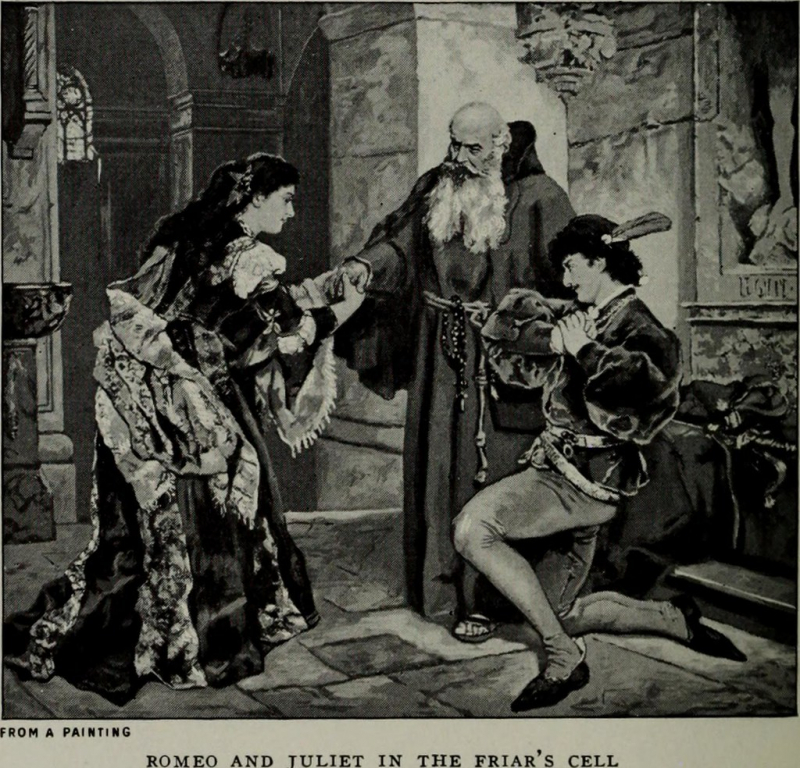
Photo on PICRYL 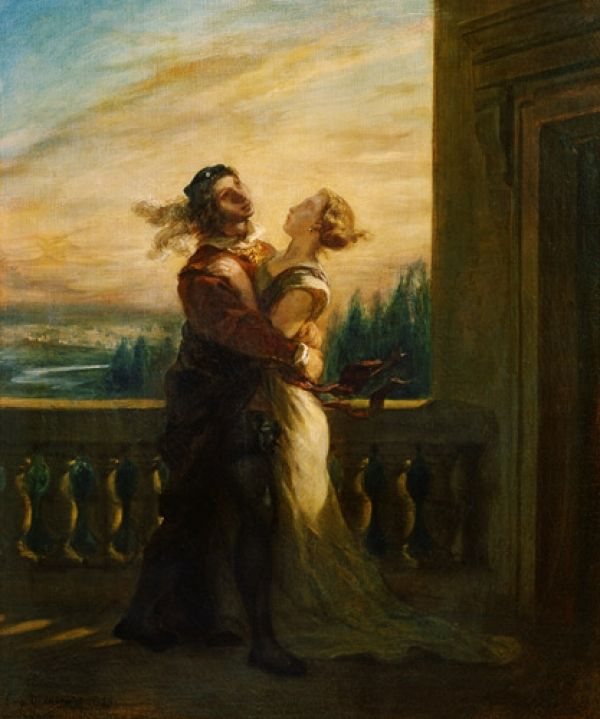
Photo on Wikimedia Commons -
The interplay between love and sex in Romeo and Juliet is complex and subject to interpretation. In Act I, Romeo speaks of his frustrated love for Rosaline in poetic terms, depicting love as an abstraction. However, he hints that his advances were rebuffed because Rosaline chose to remain chaste, reinforcing the connection between love and sexual desire.
This theme is further explored by Mercutio in Act II, who cynically suggests that Romeo has confused his love for Juliet with mere sexual desire. Mercutio's words carry a dual meaning, comparing Romeo to a court jester seeking a place to hide his staff or a mentally impaired person groping for sexual intimacy. The phrases "lolling up and down" and "hide his bauble in a hole" also imply sexual imagery, insinuating that Mercutio views love as inseparable from physical desire.
In contrast, Juliet takes a more earnest and pious stance, implying a hierarchical relationship between love and sex. Her viewpoint aligns with Catholic doctrine, which emphasizes the spiritual union of marriage but also requires legal consummation through sexual intercourse. Juliet's speech in Act III, scene ii illustrates her perspective:
"Oh, I have bought the mansion of a love
But not possessed it, and, though I am sold,
Not yet enjoyed." (III.ii.26–28)Here, "purchase" symbolizes love and marriage, while "possession" represents sexual union. Juliet longs for the consummation of their marriage, expressing a desire to "enjoy" Romeo. Her plea, "Give me my Romeo," coupled with the metaphorical imagery of Romeo being "cut out in little stars," subtly alludes to the anticipated sexual ecstasy.
The conflict between Mercutio's cynical conflation of love and sex and Juliet's earnest distinction between the two adds depth to the thematic exploration. The nuanced perspectives highlight the multifaceted nature of love and sex in the context of the young lovers' passionate and tragic tale.
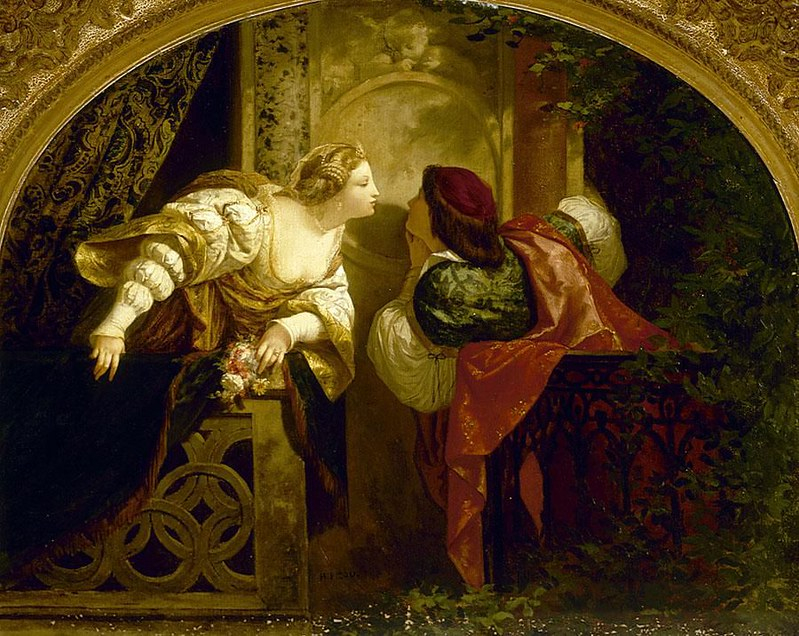
Photo on Flickr 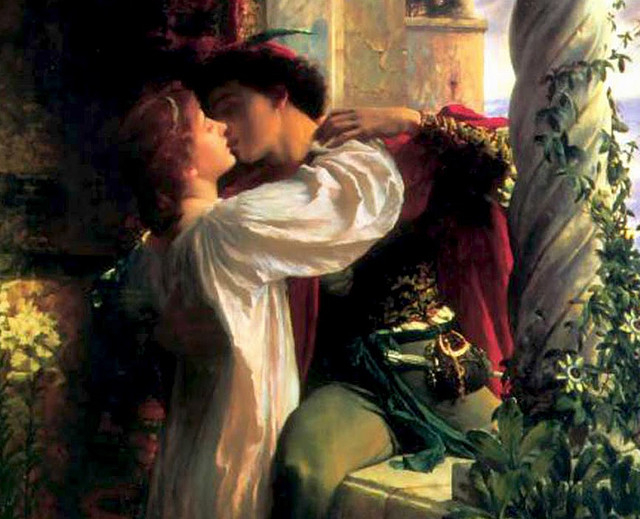
Photo on PICRYL








